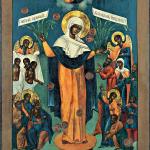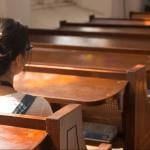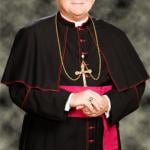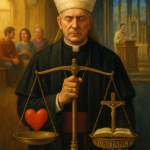Last updated on: January 14, 2017 at 11:02 pm
By
CNA Daily News
Bhubaneswar, India, Jan 14, 2017 / 04:02 pm (CNA/EWTN News).- India is a country of more than 1.2 billion people, with Christians accounting for only some three percent of the population, including close to 19 million Catholics. Despite its relatively small size, the Indian Church has a disproportionate impact on Indian society through education and social services. With the ascension to power of the Hindu nationalist BJP party, there has been a rising tide of violent attacks on Christians as well as Muslims. Growing intolerance of religions considered to be foreign imports adds to the wounds of both Christian and Muslims of low caste background – known as dalits – who are denied government benefits awarded to low-caste Hindus, Sikhs and Buddhist to compensate for centuries of discrimination by the dominant Hindu culture. To address the needs of dalits within the Church – where low-caste faithful have also suffered various forms of discrimination, despite the fact that 12 million of India’s Catholics are dalits – the Catholic Bishops’ Conference of India has released a document which proclaims that “if there are any dual practices based on caste discrimination, such practices should be stopped forthwith.” It also says that dalit Christians keep alive the vision of God’s reign for justice and love. Recently, representatives of Aid to the Church in Need (ACN), the international Catholic charity, returned from a fact-finding mission to India, where it met with four of the six bishops of Odisha state. In 2008, Hindu mob violence in the community of Kandhamal in Odisha State killed some 100 Christians. The case is slowly making its way through the court system, as Christian defendants are gradually being exonerated from the charge of having provoked the rampage. On Dec. 13, 2016, Pinarayi Vijayan, the Chief Minister of Kerala, asked for a new investigation of the massacre. Please find below the full text of ACN's conversation with the bishops in Odisha:ACN: What are the prospects for Christian and Muslim dalits being granted the same benefits as low-caste members of the Hindu, Buddhist and Sikh communities?Bishop Aplinar Senapati of Rayagada: Since 1950 we are fighting for the rights and benefits of the dalit Christians but right now I do not see the brighter perspectives. However, our fight continues on the national, CBCI and state level. I hope and pray our government will grand these benefits to the dalit Christians.Bishop Sarat Chandra Nayak of Berhampur: This a clear-cut violation of the constitutional provisions of equality before the law. Christian and Muslim dalits are denied affirmative action benefits purely on the basis of religion – the Constitution forbids this. We have been fighting for these rights for the past 60 years; the case is presently before the Supreme Court. The current government does not want to amend the 1950 Presidential Order which excluded dalit Christians and Muslims from the provision. Our hope is that the Supreme Court will respond to this injustice, which has been suffered by millions of dalits for decades.The Church will continue to raise its voice in demanding justice be done.Bishop Niranjan Sual Singh of Sambalpur: The primary, hidden reason the government opposes benefits for Christian dalits is a concern that once low-caste Christian can take advantage of affirmative action with regard to education and access to civil service jobs, many Hindu dalits will convert to Christianity.ACN: How is the Indian Church dealing with the challenge of itself fully welcoming dalits?Bishop Singh: The Church must welcome these new believers; it is dalits in particular who accept Christianity; they find there a sense of brotherhood, equality and love; in Hinduism they stil face discrimination, being barred from entering the temple by the high castes. Dalit Christians like the Church’s universal nature and its egalitarian ethos. The Church must invite these people, the poorest, most neglected, whom the Gospel invites us to work for most. Unfortunately, in many places, dalit Christians are not given equal opportunities. For instance, dalit children are barred from being altar servers or dalits cannot be lectors; Mass is segregated and there are separate cemeteries for dalits and cemeteries for high castes. Dalits are often not considered for leadership positions in the Church; and some communities oppose marriage of dalits with high-caste Catholics. This is a big concern. Dalits account for more than half of all Indian Catholics. The future of the Church will be with the dalit community – it is high time the Church abolish all segregation and discrimination. The Church needs to develop its own program of affirmative action to help both the dalits and tribals among the faithful.Bishop Senapati: We make no distinction between high and low-caste Christians in Odisha. We fully welcome dalits. We are all baptized in one faith – we have one God. We welcome all the people.ACN: Does the Church see genuine opportunities for dialogue with moderate Hindus as a tool to combat Hindu extremism?Archbishop John Barwa of Cuttack-Bhubaneswar: We are all children of God and one day we will all understand that. Hate campaigns do not build up society. There is an openness among the Hindu population at large; they are drawn by the example of Christian love, as witnessed in a particular way by St. Mother Teresa. All kinds of “dialogues of life” are taken place – being together, getting to know each other. This is leading to unity and solidarity. Of course, we need dialogue more than the Hindu majority. We have to take the initiative and demonstrate our willingness to dialogue. The Church presents itself as being at the service of everybody. We are making progress. A great majority of the Indian people are good-hearted; not all are extremists. India is a land of Hindus where we are a tiny minority. But we should be proud that we are able to do so much through our dedication and commitment – let us make this more visible and vibrant. The Church can become like a lamp on top of a mountain, a light for all to see.Bishop Singh: We are seen as a Church that creates harmony among faiths. For example, in the wake of the 2008 killings, Christians did not take revenge. That was very significant. The Church belongs to the powerless of society, people who naturally do not choose violence; they respond to violence with acts of reconciliation and a message of peace. Non-violence is also a witness to Jesus; it shows Hindus the power of our faith, the power and freedom not to meet violence with violence; the Church is an agent of love, forgiveness. That is our identity and it makes the Church a powerful witness.Bishop Senapati: We push for peace, reconciliation and the emancipation of the poor, irrespective of caste, creed or religion. All deserve the opportunity to develop themselves and become self-sufficient. We must be a genuine religion of love and brotherhood. Nothing is more important. There are Hindu leaders who are very good and appreciate the real message Jesus has for India – such as forgiveness, peace, love for the poor, etc. With them we can have the dialogue.ACN: What areas of the Church’s life and ministry need the most strengthening in India?Bishop Singh: We need to stress the notion of catholicity – the Church’s oneness. Our Church is too much divided according to language, ethnicity and geography. Our dialogue with other faiths has to go deeper – we need to reach out, to better understand others, and thus move toward brotherhood. We need to intensify our activity among the poor; our concern for the poor has to be more visible. We risk being too much of an institutional Church that does not hear the cry of the poor – we need to elevate the poor! Mother Teresa’s canonization was a spur to action.Bishop Nayak: The formation of the laity is crucial; we must help raise a generation of great Catholic leaders who will assume the responsibility proper to them in all aspects of society – social, political, economic, and environmental. We want to build up an enlightened laity.ACN: Does the Church have confidence that, in the end, justice will be done in Odisha?Archbishop Barwa: There is nothing impossible for God. Justice is slowly being done. There will be success and there will a growth of the Christian community in Odisha. The scars will take a long time to heal and evaporate. Prior to the massacre in Kandhamal, there was peace in this region; now trust has been broken; our people cannot trust those who burned down our houses and churches. Building up trust and confidence will take much longer than the reconstruction of homes and churches. Read more
















